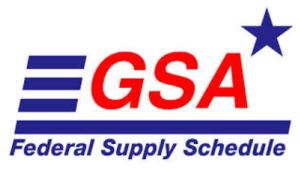Are you currently considering and researching GSA contracts? There’s a lot of info out there! That’s because a GSA contract can be a valuable asset to the companies that hold one. Likely, you’ve run across a multitude of reasons for getting a GSA contract: billions in Federal contracts, reduced competition for contracts, simplified proposal processes (did I mention the billions in Federal contracts?!). All of this information, coupled with all of the consulting firms (like ours, but not as good 🙂) offering to help you get a GSA contract can make it sound like every business should have a GSA contract. However, this just isn’t the case. Before you decide to dive into the arduous journey of getting a GSA contract, take a look at why you shouldn’t.

-
Basic Eligibility Requirements
1.1 Two Years in Business
A basic eligibility requirement of GSA contract holders is that they have been in business for at least 2 years. This rule is in place to allow valid businesses a chance to prove they have what it takes to stay in business, an important factor for potential Federal buyers who may be issuing multi-year contracts.
-
Financial Challenges
2.1 Impact of Covid
Finances can be a challenge, particularly if your business has been affected by Covid. If your financial records are currently in need of some TLC, a GSA contract is not right for you – at least not right now. Federal buyers need to feel confident that the GSA contract holders they purchase from are financially stable to execute on their contracts. Part of applying for a GSA contract includes submitting financials to be reviewed.
-
Trade Act Agreement Compliance
3.1 Restricted Countries
Our government has posted a list of countries from which they are not legally allowed to buy products from. This regulation is called Trade Act Agreement Compliance, or more commonly, TAA Compliance. If your business buys products or parts of products from these excluded countries, Federal agents cannot buy them. A list of the officials and excluded countries can be found by searching TAA Compliance. When submitting for a GSA contract, businesses are required to certify that they are in compliance with this rule as well as provide Letters of Manufacture for the products they intend to sell through the GSA contract.
-
Product/Service Suitability
4.1 Common Items on GSA Contract
Not every product/service bought and sold in the world is bought/sold through the GSA contract. The GSA contract contains the more common items a Federal agency might need such as: office products, IT services, office furniture, professional services, and so on. Items and services that are either very new or niche may not have made their way to the GSA contract yet. A little market research can help you determine if your products/services have a home on the GSA contract (call us if you need help with this).
-
Long-Term Commitment
5.1 20-Year Contract
A GSA contract can be a long-term, 20-year contract. Within this time, contract holders have sales reporting responsibilities, requests for quotes to respond to, regulation changes to accept and follow and so on and so on… This contract is a big responsibility. Sure, a company like ours can help with some of these requirements, but your ultimate success with a GSA contract does depend on having someone internally available to monitor it.
Conclusion
If any of these reasons NOT to get a GSA contract resonate with your business, don’t get a GSA contract! This is NOT the same as saying, don’t get a government contract. GSA contracts are not the only way agencies buy goods and services. Your business has options.
To discuss whether a GSA contract OR another government contract is right for your business, call us at: (234) 212-3400 or message us at Capitol 50 Consultants.




